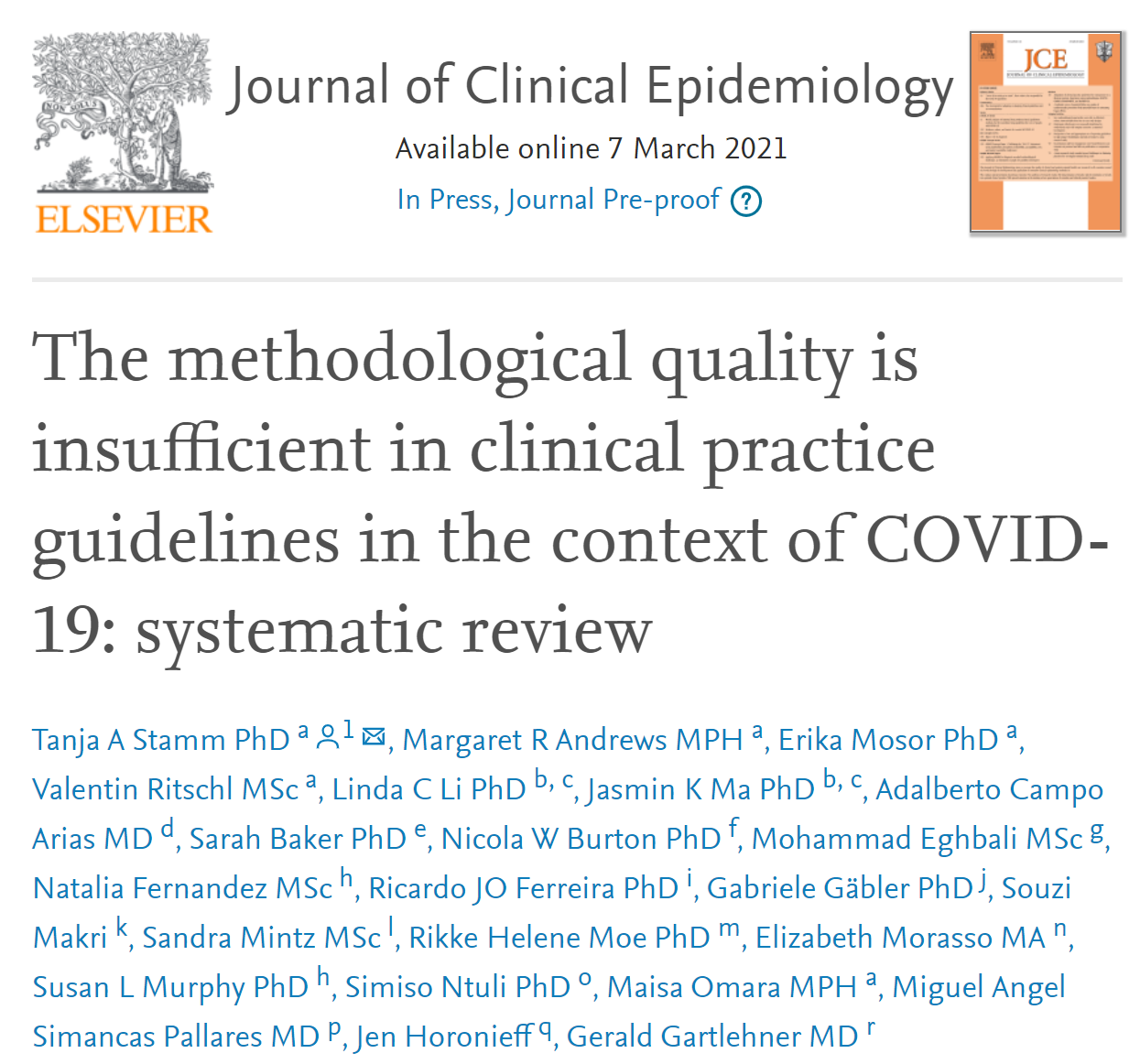The methodological quality in clinical practice guidelines in the context of COVID-19 needs to be improved

In March 7, 2021, Tanja A Stamm, et al published an article entitled “The methodological quality is insufficient in clinical practice guidelines in the context of COVID-19: systematic review” in the Journal of Clinical Epidemiology. This study systematic searched clinical practice guidelines or recommendations related to Corona Virus Disease 2019 (COVID-19), and assessed their methodological quality by using the Appraisal of Guidelines for Research and Evaluation II (AGREE II) tool.
This study finally included 188 guidelines or recommendations related to COVID-19 situation, their users include all types of healthcare workers providing any kind of healthcare to any patient population in any setting. The exclusion criteria were: 1) guidelines or recommendations related to infection control and exposure safety information, experimental pharmaceutical treatments, clinical research recommendations, ethical guidelines, diagnostic procedures or strategies; 2) guidelines or recommendations in which results not produced in direct relation to the COVID-19; 3) documents which cannot be available in English. Textbooks, theoretical exercises, case studies, experience write-ups were also excluded.
The results showed that for the six domains across the AGREE II tool, the highest average score was 89% for scope and purpose, while the lowest for rigor of development (25%). For the included 188 guidelines, the mean overall methodological quality rating was 3.8 (standard deviation [SD]+/-1.4) of a maximum score 7. Of these, 83% formulated their recommendations by solely based on an informal expert consensus. Only 14% described for a process for regular updates, and patients were included in the development process of only one guideline. Only eight guidelines were built on a systematic literature search and a structured consensus process by representative experts, and for these eight guidelines, the mean overall methodological quality rating was 6.7 (SD +/-0.5) of a maximum score 7.
It has been more than a year since the outbreak of COVID-19. As an effective tool to guide the clinical practice of medical personnel, the methodological quality of the guidelines has received much attention and is closely related to clinical practice. In a study published by the British Medical Journal, AGREE II tool was used to assess the methodological quality of 18 guidelines published between the onset of COVID-19 and 14 March 2020, by international and national scientific institutions, as well as governmental and non-governmental organizations concerned with global health. The results indicate that there is an urgent need to improve the methodological quality of guidelines related to COVID-19. As such, given the critical role of guidelines in clinical practice and public health decision-making, guideline makers, researchers, administrators, and users need to work together to fight for improving patient health outcomes.

